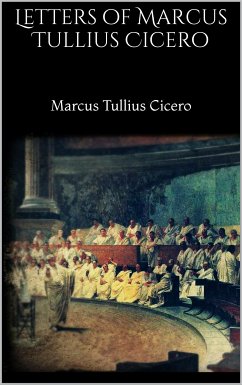THE letters of Cicero are of a very varied character. They range from the most informal communications with members of his family to serious and elaborate compositions which are practically treatises in epistolary form. A very large proportion of them were obviously written out of the mood of the moment, with no thought of the possibility of publication; and in these the style is comparatively relaxed and colloquial. Others, addressed to public characters, are practically of the same nature as his speeches, discussions of political questions intended to influence public opinion, and performing a function in the Roman life of the time closely analogous to that fulfilled at the present day by articles is the great reviews, or editorials in prominent journals.
In the case of both of these two main groups the interest is twofold: personal and historical, though it is naturally in the private letters that we find most light thrown on the character of the writer. In spite of the spontaneity of these epistles there exists a great difference of opinion among scholars as to the personality revealed by them, and both in the extent of the divergence of view and in the heat of the controversy we are reminded of modern discussions of the characters of men such as Gladstone or Roosevelt. It has been fairly said that there is on the whole more chance of justice to Cicero from the man of the world who understands how the stress and change of politics lead a statesman into apparently inconsistent utterances than from the professional scholar who subjects these utterances to the severest logical scrutiny, without the illumination of practical experience.
In the case of both of these two main groups the interest is twofold: personal and historical, though it is naturally in the private letters that we find most light thrown on the character of the writer. In spite of the spontaneity of these epistles there exists a great difference of opinion among scholars as to the personality revealed by them, and both in the extent of the divergence of view and in the heat of the controversy we are reminded of modern discussions of the characters of men such as Gladstone or Roosevelt. It has been fairly said that there is on the whole more chance of justice to Cicero from the man of the world who understands how the stress and change of politics lead a statesman into apparently inconsistent utterances than from the professional scholar who subjects these utterances to the severest logical scrutiny, without the illumination of practical experience.









